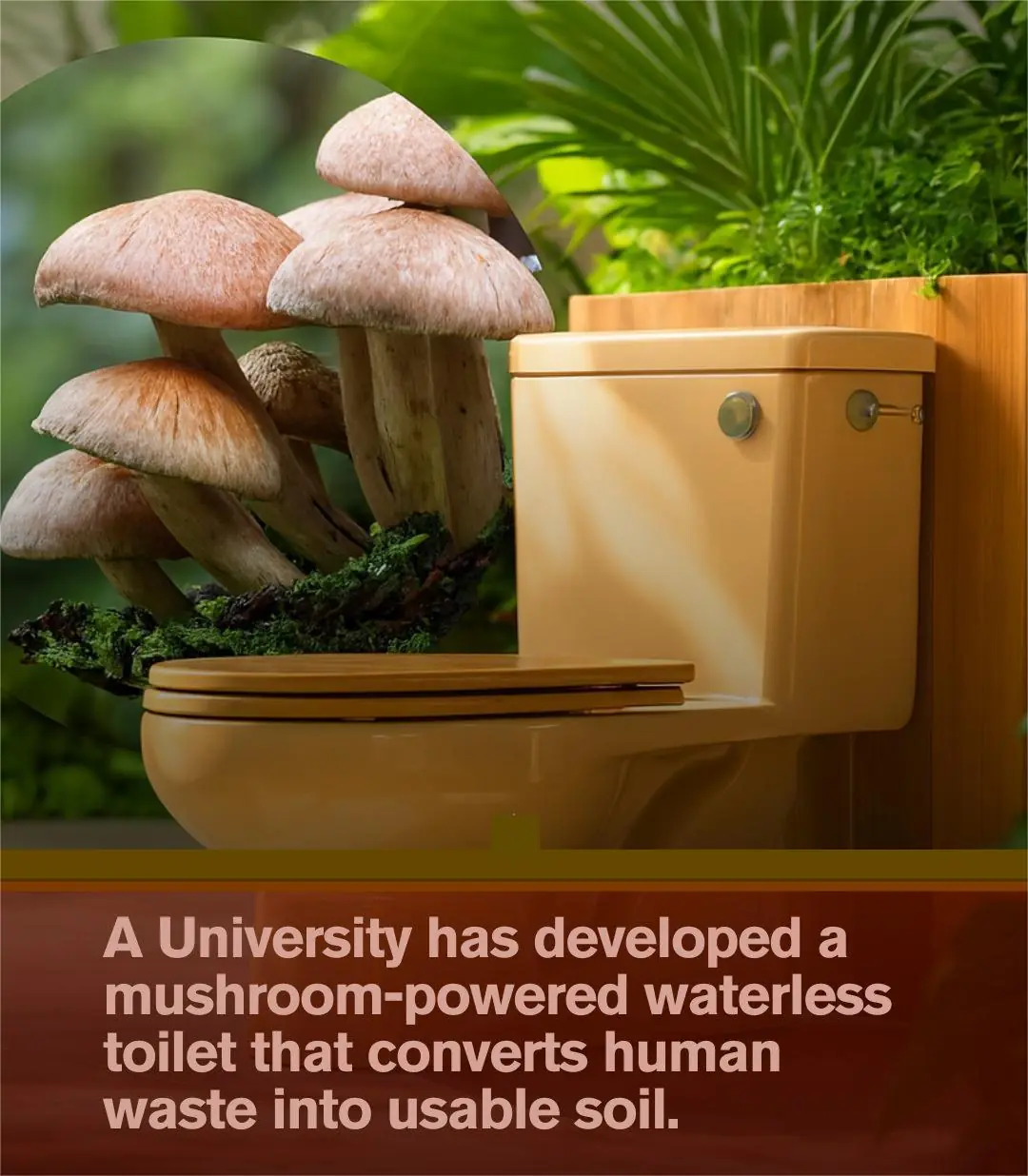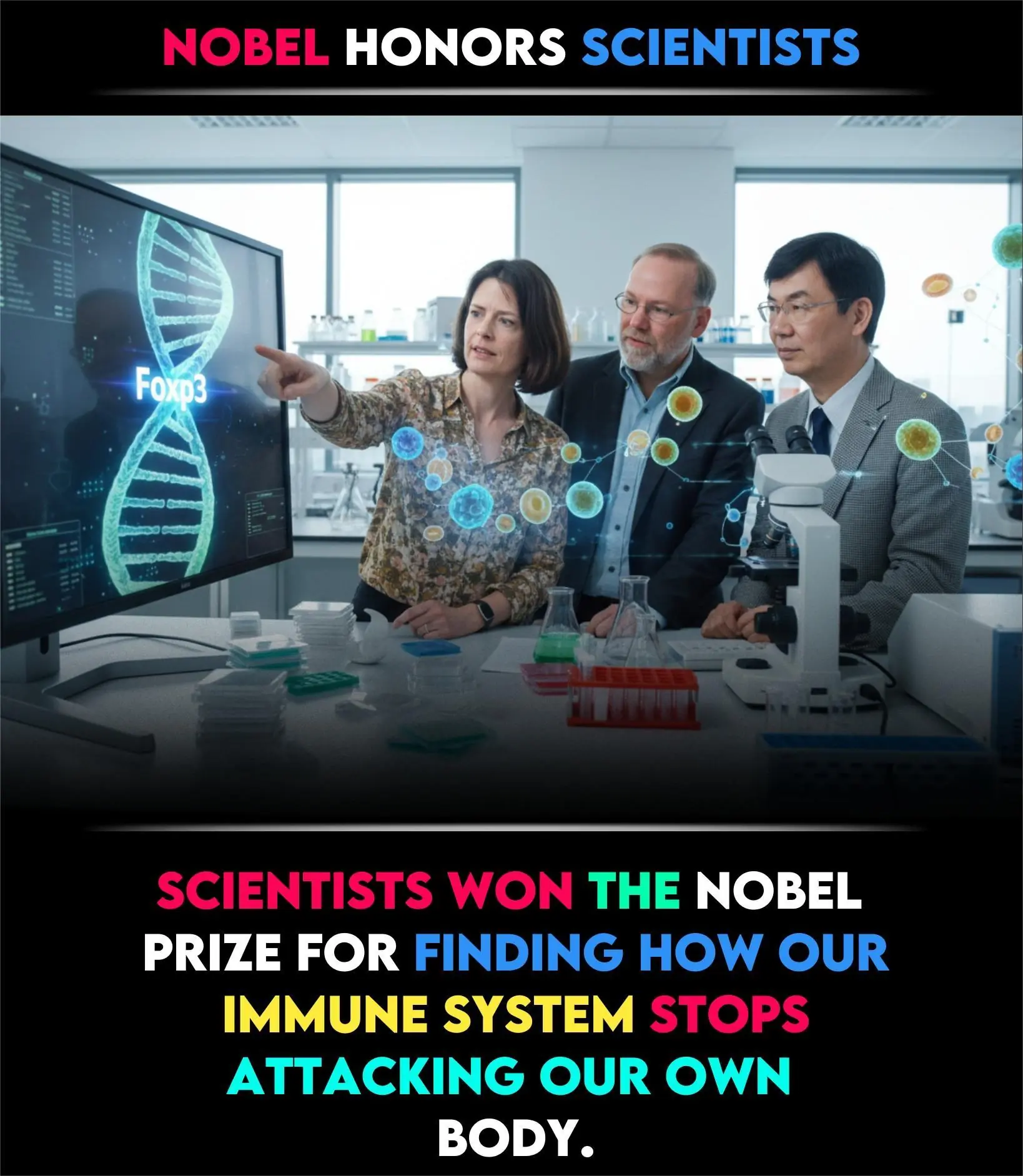
🌱 UBC Scientists Develop the World’s First Mushroom-Powered Waterless Toilet

In a groundbreaking stride toward sustainable sanitation, researchers at the University of British Columbia (UBC) have unveiled a revolutionary invention — a mushroom-powered, waterless toilet that transforms human waste into nutrient-rich compost. The innovation, named MycoToilet, represents a fusion of biology, sustainability, and engineering designed to minimize water consumption and create usable soil from waste.
Turning Waste Into Life
Located at the UBC Botanical Garden, the MycoToilet operates without any water. Instead, it uses mycelium — the root-like structure of fungi — to naturally decompose human waste. Mycelium breaks down organic material, neutralizes odors, and converts waste into a form of compost that can eventually be used to nourish plants.
According to UBC’s research team, this process can produce approximately 600 liters of solid compost and 2,000 liters of liquid fertilizer annually, making it an efficient, zero-waste system that supports ecological cycles.
Sustainable Design for the Future
Traditional toilets are responsible for a significant portion of household water use — as much as 30% in some regions. The MycoToilet aims to change that. By completely eliminating the need for flushing water, it reduces pressure on water systems and cuts greenhouse gas emissions associated with wastewater treatment.
In addition, the system is odorless, compact, and designed for easy maintenance. UBC researchers emphasize that it can be particularly valuable in remote communities, disaster zones, and developing regions where clean water and sewage infrastructure are limited.
How It Works
The toilet separates solid and liquid waste. Solid waste is directed into a chamber containing a network of fungal mycelia. These fungi break down waste materials through natural decomposition, aided by controlled temperature and airflow.
The resulting compost — rich in nutrients — can be used for soil enrichment, while liquid waste undergoes natural filtration and evaporation to prevent contamination.
Beyond the Laboratory
UBC’s Living Labs program has integrated the MycoToilet as part of a larger initiative to explore circular resource systems — turning waste into usable materials and energy. Environmental engineers and biologists at the university are now analyzing the long-term viability of fungal decomposition under various conditions and plan to test similar systems in community settings.
The MycoToilet is also being studied for potential commercial applications in eco-resorts, national parks, and sustainable housing developments worldwide.
A Step Toward a Cleaner Planet
The mushroom-powered toilet exemplifies how nature-inspired innovation can address global sustainability challenges. With growing concerns about water scarcity and pollution, solutions like the MycoToilet highlight the power of biotechnology and ecological design to close the loop between waste and renewal.
UBC researchers hope their creation will inspire more green technologies that harmonize human needs with the planet’s natural systems — turning what was once considered waste into the foundation of new life.
News in the same category


The Windows 10 Wallpaper That Was Shockingly Real

Olympic Medal Turned Into a Miracle: The Selfless Act of Maria Andrejczyk

A Little Boy’s Silent Prayer That Touched the World

Bullied 7-Year-Old Boy Finds a Kindred Spirit in Cat With the Same Rare Conditions

Single Dad in Thailand Dresses as Mom to Support His Daughter

Man With Facial Disfigurement Asked to Leave Restaurant Before Sitting Down

She Had 43 Cosmetic Procedures To Become A Barbie Doll – Critics Say She Looks Like A ‘Zombie’

She believed it was just an ordinary photo — but zooming in revealed a shocking truth that turned her world upside down

Newly married couple tragically discovered dead in their car just weeks before celebrating their first anniversary

Sleeping Trick? Why Sticking One Foot Out Actually Works

Two best friends died hand in hand in an accident right before prom night

Elon Musk: Building a Thriving Mars Colony Means 100,000 People, 1 Million Tons of Cargo and a Mission Beyond Just Arrival

October 21: Rare Green Comet Meets Orionid Meteor Shower in a Double Cosmic Spectacle

Indian Engineers Win Ig Nobel Prize for UV Shoe Rack That Kills Bacteria and Eliminates Odor

Nobel Prize 2025: Breakthrough Discovery Reveals How the Immune System Knows When to Stop Attacking Itself

GE’s Haliade-X: The World’s Most Powerful Wind Turbine Revolutionizing Clean Energy

Google Grants a Special Birthday Wish from a Little Girl
News Post

WHAT HAPPENS WHEN WE TONGUE KISS…See more

Nature’s Secret: 4 Healing Leaves That Support Metabolism, Immunity & Circulation Naturally

Don’t Drink Coconut Water Before You Know These 11 Secrets!

Pumpkin Seed Milk — The Natural Parasite Cleanser

Fast Rice Water Trick for a Brighter Smile

Morning Drink to Revive Your Kidneys Fast

The Onion Recipe That Could Transform Your Blood Sugar, Support Cleaner Arteries, and Protect Your Heart!

Top 4 Fruits That Help Your Kidneys Flush Out Toxins While You Sleep

Ginger, Clove, and Honey: The Natural Trio Your Body Will Thank You For

Heal 15 Years of Joint Pain Naturally with Turmeric and Honey Tea

This Juice Revived My Grandma’s Energy — Say Goodbye to Fatigue and Body Pain with This Natural Recipe

The Benefits of Eating 2 Boiled Eggs Every Morning: Transform Your Health!

If Your Kidneys Are in Danger, Your Body Will Send You These 8 Signals — Don’t Ignore Them

The Surprising Effects of Avocado on Your Heart and Brain

Ways to Get Over a Man Who Didn’t Value You

I’m 66 but Look 36 — My Secret? Aloe Vera & Ginger for Firm, Smooth Skin

How to Make Okra Water to Treat 17 Health Problems Naturally

Banana and Egg Mask to Look Younger Even in Your 80s

Scent Leaf Secrets Unveiled: 10 Surprising Health Benefits of This Miracle Herb
